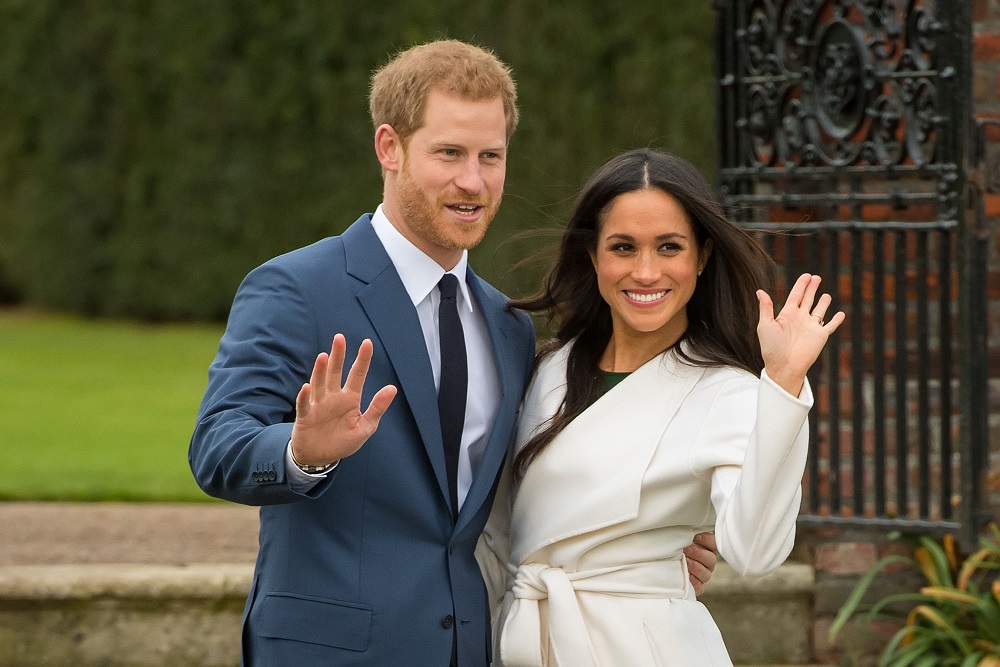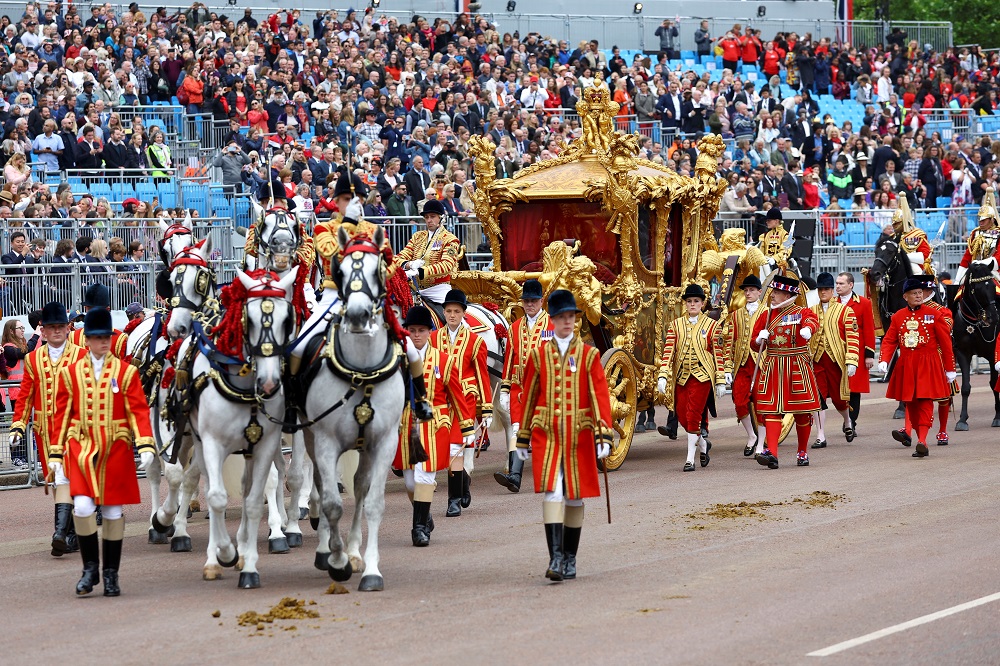What impartial broadcast coverage of the coronation would look like

Stephen Cushion, Chair Professor, Cardiff School of Journalism, Media and Culture, Cardiff University
King Charles III’s coronation will be broadcast to millions of people around the world. Many of those viewers will be watching on the BBC, whose impartiality when it comes to the monarchy has come under question.
The campaign group Republic recently sent a letter to the public broadcaster stating that the BBC “not only fails to be impartial, but makes no attempt to be impartial or balanced and, most shockingly, openly colludes with the palace in its coverage”.
Broadcasters have long been criticised about their coverage of politics and public affairs. Unlike newspapers, online news and social media, broadcasters are regulated by Ofcom and have to abide by rules on impartiality.
Ofcom’s code asks broadcasters to follow “due impartiality” guidelines. Being impartial means not favouring one side over another. But, as my research has shown, the “due” gives broadcasters plenty of leeway in how they construct impartiality and select competing perspectives.
Ofcom’s guidance emphasises broadcasters’ rights of freedom of expression. But it asks for news items to “take account of all relevant facts, including the nature of the coverage and whether there are varying viewpoints on a particular item”.
The regulator also points out that any topic – not just political controversy or public policy – is potentially subject to impartiality.
Covering the crown
The BBC claims to report impartially on the royal family. Over recent years, there have been times when broadcasters have reported critically on royal figures.
The now-infamous Newsnight interview, where Prince Andrew discussed his alleged sexual exploits, lavish lifestyle and friendship with sex offender Jeffrey Epstein, was widely reported by broadcasters, as was his subsequent withdrawal from public life.
In a Netflix series, Meghan, Duchess of Sussex, reflected on her experiences of racism inside Buckingham Palace. While Netflix is not subject to Ofcom regulation, many broadcasters followed up on the interviews.

Some, including the BBC, reported on Prince Harry’s suggestion that an “invisible contract” existed between the royal family and reporters. This gave credence to claims that journalists trade inside access for less serious scrutiny of the monarchy.
The BBC has also faced criticism from viewers who see the broadcaster as not being appropriately respectful in royal coverage. A notable example was the controversy over newscaster Peter Sisson’s burgundy tie when he announced the queen mother’s death in 2002. When BBC news anchor, Huw Edwards, announced the passing of Queen Elizabeth II in 2022, he was praised for his sombre and emotional demeanour – while wearing all black attire.
When broadcasters reported the queen’s funeral, a sombre tone of public mourning shaped coverage.
This “national mood” was represented in interviews with members of the public paying testament to the queen’s long reign and praising the monarchy more generally.
But while broadcasters understandably adopted a respectful tone about the royalty during the queen’s funeral, how accurately does this represent public opinion about the monarchy?
In 1994 the British Social Attitudes (BSA) survey revealed that two-thirds of the public – 67% on average – agreed “it is important for Britain to continue to have a monarchy”. By 2021, this slipped to 55% – the lowest score on record – with one-quarter believing either the monarchy was “not at all important” or that it should be abolished.
Far fewer younger people considered the monarchy to be very important, but the BSA survey suggests that support tends to grow as people age.
A new YouGov poll commissioned by the BBC has assessed public perception of the monarchy in the weeks before the coronation. While showing broad support for the monarchy, it also revealed the youngest age group favour replacing the monarchy with an elected head of state. This reinforces a similar poll taken by YouGov in 2021.

Impartial coronation coverage
In day-to-day reporting, my studies of television news have shown the monarchy do not typically make up much coverage. Beyond dramatic scandals involving royal figures, it tends to be the pomp and ceremony of major events, such as the late queen’s death and funeral, that pushes the monarchy up the news agenda.
When focused on these events, broadcast coverage can often imply that the UK is united behind the monarchy – but the evidence suggests this is not a full picture of public opinion. Many people hold republican perspectives, and a significant minority of the public hold critical viewpoints about the monarchy.
But based on the special programming broadcasters have announced they intend to air during the coronation, it does not look likely that these perspectives will be prominently reflected.
Channel 4 announced a series of programs that will put King Charles and the monarchy under a microscope https://t.co/kfXZawj2ZB
— TIME (@TIME) April 18, 2023
The schedules of the major broadcasters will largely follow royal events and ceremonies. Only Channel 4 appears to include programming that raises critical questions about the UK’s constitutional arrangements.
The comedian Frankie Boyle will consider whether the monarchy is out of touch in modern Britain, while the journalist Emily Maitlis will reflect on that controversial 2019 interview with Prince Andrew that had devastating implications for the royal family.
Should other broadcasters be following Channel 4’s lead? Ofcom’s rules on impartiality ask for “varying viewpoints on a particular item”. Whether in routine news reporting or in one-off programming about the royalty, broadcasters could do more to reflect the public’s perspectives.
In practice, royal correspondents could adopt a more critical and detached standpoint by challenging rather than largely accepting perspectives they source from Buckingham Palace. Meanwhile, debates about the pros and cons of a constitutional monarchy could be a more regular part of coverage. News bulletins, for example, could feature interviews with the public that include republican as well as royalist voices.
An impartial approach to covering the coronation would include broadcasters not only reporting the pomp, circumstance and bank holiday celebrations – it would also feature perspectives that question the existence and role of the monarchy.
This article was first published on The Conversation
![]()
Support our Nation today
For the price of a cup of coffee a month you can help us create an independent, not-for-profit, national news service for the people of Wales, by the people of Wales.







The ‘national mood’ is a fiction, it isn’t sampled directly but via the media coverage that is bringing it into being. How was it Huw Edwards knew to wear a black tie, and the BBC to interrupt Bargain Hunt? Did the BBC have spies in the Palace to know how serious the Queen’s condition was? What is the purpose of the BBC showing the coronation on both BBC 1 and BBC 2 at the same time? Is there an implication that viewers exercising viewing choice is somehow treasonable? How is this deemed a sensible thing to do in an age… Read more »
The ‘national mood’ is a fiction … ____________ The ‘national’ mood is indeed a fiction as there is no nation. The so-called United Kingdom is a nation state comprising (at least) 5 separate countries in a non-voluntary union broadcast to by a state broadcaster who levies a universal poll tax on watchers of its ‘services’ and then fails broadcast anything which is outwith its ‘received understanding’ of that nation-state, which is usually both Londoncentric and Anglocentric. The Coronation is merely another example of Anglia Gloriana – dished up for us plebs as a form of circus. Whereas the Fall of… Read more »
The whole purpose of the BBC is to influence not inform.
How objective are they when it comes to Ukraine, Palestine, Scottish independence or dodgy wars waged by the west?
Thankfully less and less people are watching BBC News.
BBC
Broadcasting British Coronation
Nice to see King Charles the 3 being Coronated. Wont be the same as the Coronation of his late mother the Queen Elizabeth. But it is nice to keep the UK Monarchy and the Royal Tradition, that is what is all about UK and its city London, the UK people and the Royalty and RF. UK people love Monarchy that was built since 16 century and even earlier and love to stay for ever with Kings and Queens. Hope everything goes well with no any drama or disagreements from Harry and his wife MM. Long live the King Charles!